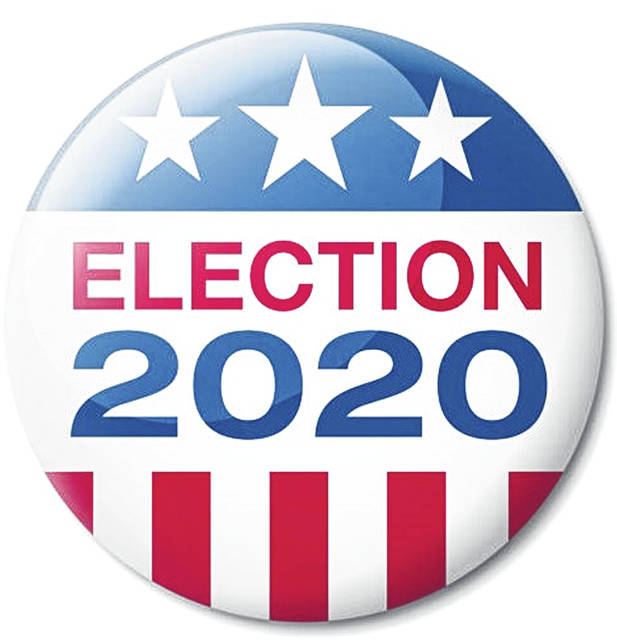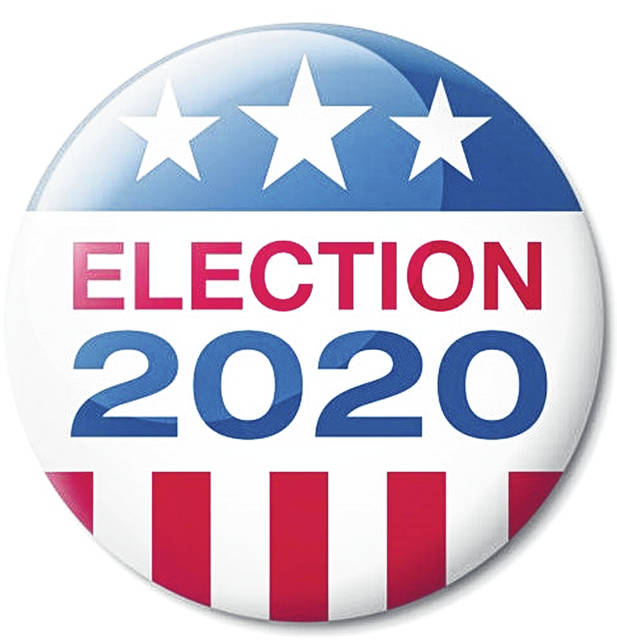

COLUMBUS (AP) — Ohio’s elections chief said Tuesday that he continues to take steps to head off a potentially chaotic November election, including adding clarity to absentee ballot request forms, tracking poll worker recruitment and upgrading his website so the potentially large number of outstanding absentee ballots will be clearly visible on Election Night.
Secretary of State Frank LaRose said it would be a “nightmare scenario” if a candidate inaccurately declared victory based on incomplete, unofficial results.
“The old election official’s prayer is, ‘Lord, whoever wins, let them win big,’ right?” he said during a Statehouse briefing. “So we know that’s not always the case here in Ohio. We’ve had some tight margins in the past. Ohioans make you earn your victory. Nobody gets an easy ride here.”
He said reporting the number of outstanding absentee ballots is designed to make it “abundantly clear” if one candidate has defeated another or if more counting is needed to determine the victor. LaRose emphasized that results reported Nov. 3 — or into the morning of Nov. 4 — will still be unofficial, as always, with official results reported weeks later.
Also to avoid disenfranchisement, LaRose urged voters to be wary of the words and deeds of some fellow Republicans, reiterating an “effective deadline” of Oct. 27 for requesting mail-in ballots that precedes the actual GOP-penned cutoff by four days and labeling President Donald Trump’s advice that people vote twice as “misinformation.”
“Certainly, that doesn’t fall in the disinformation protocol that our office has set up, but it does fall into the category of I guess what you would call misinformation,” he said during a Statehouse briefing. “Where something incorrect was said and it’s my responsibility as secretary of state to make sure Ohioans know the facts, and that is: Vote once and your vote will be counted.”
LaRose said 7.8 million absentee ballot applications were mailed in time for Labor Day and that the embattled U.S. Postal Service appears to have gotten many of them to their destinations even sooner. He said Ohioans may receive similar applications in the coming weeks from other sources, including political parties, candidates and ideological groups — and that’s perfectly legal.
But he said there’s no need to send in duplicate requests, which add work for local boards. He noted the ballots themselves will not be mailed out until Oct. 6, when early in-person and absentee voting begins. Voter registration ends Oct. 5.
“The message loud and clear should be: Submit your absentee ballot requests, but you only need to submit one of those,” he said. The voteohio.gov website allows voters to track the balloting process.
LaRose said application forms have been redesigned this year to try to prevent two of the most common mistakes: Writing in the current date where one’s date of birth should be, and forgetting to sign where requested. He said he’s allowed county election boards to address such issues by phone or email this year, rather than by mail, in hopes of speeding and easing the process. That’s why forms ask for a phone number and email address, he said.
LaRose continues to lobby for the necessary clearance to pay postage on all ballots. His request was set for a vote by the powerful state Controlling Board on Monday. He said it’s too late to preprint the postage on envelopes, so if the request is approved, his office will purchase stamps in bulk that local boards will adhere to envelopes themselves.
He said all the policy arguments he’s heard against prepaid postage have been based on inaccurate information and he is hopeful for a positive vote. Prepaid ballot postage doesn’t give advantage to one party over another, LaRose said, and is likely to prompt voters to turn around their completed ballots sooner.
Poll workers are still needed in counties across the state.


